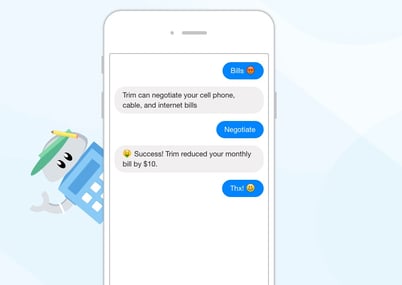Saving on a Limited Income with an SCI
Everybody wants to save money no matter their situation, and people with spinal cord injuries are the same as everyone else. The only problem - many people with spinal cord injuries are on a limited income from government funding they may be receiving like social security (SS), supplemental security income (SSI), or food stamps. It can be hard to return to work as well.
Chronic pain, limited mobility, and depression prevent many from returning to work and as a result, this leaves many of our brethren in tight situations where they're literally counting down to the last dollar in their account. No one should live like this, especially when they have a spinal cord injury. Hopefully, you have a money source such as a future career, a trust fund or a lawsuit/windfall that may occur in the future. If you do not, there's still a lot you can do that can make a difference. See what we mean below.
Buy Second Hand

When you're on a limited income, always try to buy second hand if possible, other than a mattress or underwear of course. While Craigslist is a huge place to buy and sell items instead of going to the store, Facebook Marketplace is another highly popular place to check out if you want to buy are sell anything.
Move, or Rent a Room
 If you are living in an apartment that has two bedrooms, consider renting one of the rooms to a possible roommate but make sure they are someone you can trust. This could easily give you a few hundred dollars a month in your account that you did not have before. Just make sure your landlord is okay with this or you better be very good at hiding your roommate. You could also consider moving in with a family member or a friend to save money.
If you are living in an apartment that has two bedrooms, consider renting one of the rooms to a possible roommate but make sure they are someone you can trust. This could easily give you a few hundred dollars a month in your account that you did not have before. Just make sure your landlord is okay with this or you better be very good at hiding your roommate. You could also consider moving in with a family member or a friend to save money.
Buy All Groceries Online

Another great way to save money on a limited income is to buy all of your groceries online. You might think this is an expensive idea because of delivery fees, but it actually saves you from impulse purchases as well as transportation costs to and from the store. You can also more easily meal plan this way, as you can plan your meal as you click and put things in your cart. For quadriplegics, this is especially handy.
Dollar Stores Are Your Friend

Going to the dollar store can save you a big chunk of change on items like cleaning supplies and other household items that you would typically buy at stores like Target. Straws, Advil, Tupperware, and candy are great to buy here too.
Find a Side Job
As the kids like to say, find a side hustle, or try to find a side job that pays cash. It may sound like a difficult search, but you may be surprised at how many jobs pay cash, from online writing to odd jobs like personal shopping or creating art. Either way, finding a part-time job may be the ticket to help you save a little bit of money each month.
Negotiate Lower Bills
While some of your bills may be fixed, you can call and negotiate some of your bills such as your cable bill, your internet bill and even the interest rate on some of your credit cards. Your phone bill may also be something you can negotiate to a lower price, especially if you can find competitors that offer a better deal before calling. Either way, it never hurts to ask.
 There's also a new service backed by Ashton Kutcher that aims to help you negotiate your bills, using artificial intelligence (AI). It's called Trim. It works by automatically negotiating rates with the services you use, such as your cable bill or phone bill for example. While we haven't tested it, it may be worth looking into. It's free to sign up, but bill negotiation, concierge services, and their simple savings features are paid features. They are so confident in their service that if they are unable to negotiate a lower rate, you owe nothing. But if they are able to save you money, you pay Trim a percentage of the money that they saved you; in the end, you're paying less than when you started or your money back. This is great for those who want to negotiate but don't know where to start or just don't want to deal with it.
There's also a new service backed by Ashton Kutcher that aims to help you negotiate your bills, using artificial intelligence (AI). It's called Trim. It works by automatically negotiating rates with the services you use, such as your cable bill or phone bill for example. While we haven't tested it, it may be worth looking into. It's free to sign up, but bill negotiation, concierge services, and their simple savings features are paid features. They are so confident in their service that if they are unable to negotiate a lower rate, you owe nothing. But if they are able to save you money, you pay Trim a percentage of the money that they saved you; in the end, you're paying less than when you started or your money back. This is great for those who want to negotiate but don't know where to start or just don't want to deal with it.
Don't Eat Out
While it may be hard to cook with a spinal cord injury, try to avoid eating out. This is one of the biggest money sucks on the typical American pocketbook and we know that many people with paralysis frequently eat out. To stop this habit, try to have your caregivers or family members help you meal prep. There are several helpful websites that can help you with this too, like Pinterest. Also, Trader Joe’s and Aldi have great, low-cost snacks that you can just open and eat. Shopping at low-cost grocery stores is also a great idea.
Take Advantage of Free Money
When you have a spinal cord injury, there are a lot of nonprofits that offer grants to people. While they won’t give you free money for just anything, they will provide money for things such as transportation, making a home accessible, adaptive equipment, computers, rehabilitation, health insurance costs, sporting equipment, wheelchairs, and college funding. To see a full list, go here.
Save Those Pennies
While this may sound silly, don't forget to save those pennies and any other change you might have lying around your home. When you have a spinal cord injury, things like change may seem inconsequential, but it does add up, so make sure to save every penny you have and to bring it into the bank every few months.

There are apps that help automate saving your spare change. A popular app called Acorns saves your spare change and sends it to an investment account with a portfolio based on income and goals. It basically rounds up your purchases to the nearest whole dollar and the extra cents get saved away for you. Another popular app is Digit which analyzes your spending patterns to calculate how much money the app can save away for you. Apps like these make it easier to save, especially when you don't have to think about it because it's a few cents at a time. If you have a favorite app that you use for savings, let us know in the comments below!
Stay Updated on Advancements On Traumatic Brain &
Spinal Cord Injuries
About the Author





